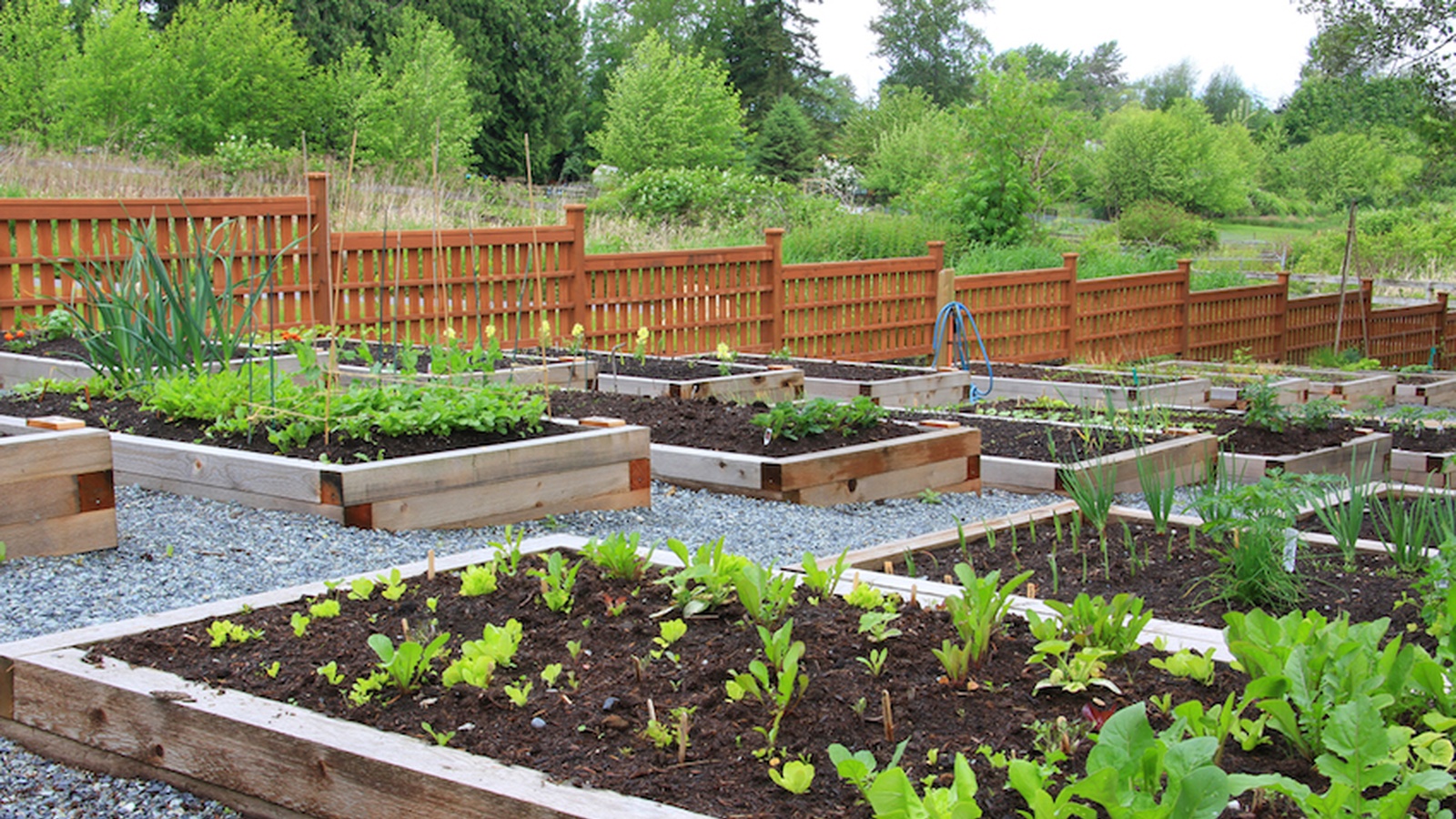Is Organic Gardening The New Way To Save The Planet?
Organic gardens have the ability to save the planet. This method of growing food has been found to minimize the effects of global warming, increase the nutrition of the produce grown, and decrease our reliance on harmful food production practices. What makes organic gardens so special? How can you begin your own backyard organic garden?
Just 30 years ago, I was asking those same questions. I had recently moved to my husband’s 3 generation family farm and had a choice about what growing practices we would follow. There are two methods - organic or chemical. I chose organic because I found it to be the safer alternative for my family, community, and environment.
To better understand why organic is better for the planet, we have to understand the complex, microscopic systems that support a healthy plant; this is called the soil food web. Plants take in sunlight and create carbohydrates and proteins, some of which is excreted through the roots.
Bacteria and fungi are attracted to the plants’ root systems to eat these nutrients. Those bacteria and fungi are eaten by protozoa and nematodes. The nutrients that the bacteria and fungi no longer need are given back as nutrients for the plants. The protozoa and nematodes are eaten by spiders, moths, flies, grasshoppers, butterflies and other insects, which then are eaten by birds, toads and other larger organisms. This delicate structure supplies all of the 17 key nutrients that a plant needs directly to the plant.
When A Plant Is Grown In A Chemical Garden, The Soil Food Web Is Destroyed
In these gardens the soil is first disrupted by tilling the bed, then the nutrition is supplemented with fertilizers that supply 3 of the key nutrients the plant needs.
The salts in these fertilizers cause the billions of single-celled organisms in the soil to burst and die. This breaks the soil food web and makes the plant reliant on the chemical cocktail that is not supplying all of the nutrition that it needs. While it is great for the chemical companies to have plants addicted to their fertilizer, it’s detrimental to the environment and your health.
Disrupting the soil food web chain will keep the plants from getting the nutrition that they and ultimately we need.
A Healthy Soil Food Web Will Have Billions Of Lives Within Its Network
The microbes that work in relationship with the plants create a world with cleaner air and water, healthier plants, and moderate water flow. In recent studies, it has been found that not only can the entire world be fed organic food, but that by doing this we could reverse the effects of global warming.
A healthy soil food web will contain carbon. The majority of this necessary component of the soil is now found in the atmosphere, creating the greenhouse effect. A great solution is to begin sequestering this carbon in the atmosphere and placing it back in the soil. That’s how organic gardening can save the planet.
In an article by Graeme Sait, “The Soil Solution”, he wrote, “The number of carbon molecules present on our planet has remained constant since the dawn of time. This carbon is either stored in the soil as humus, the carbon-based life forms ( like microbes) or the atmosphere as CO2, and it cycles between these three.”
Tweet - When A Plant Is Grown In A Chemical Garden, The Soil Food Web Is Destroyed
The way that we can recapture this carbon back into the soil is to build gardens that work towards building organic matter in the soil that is stable (like compost). By placing 6” of organic matter in all soil, we could reduce the impact of global warming on our climate by 30%. Organic gardening is just one of the many solutions to creating a better planet for all.
A recent Rodale Institute study found that if farmers used these organic carbon sequestering practices on the planet’s 3.5 billion acres of croplands and 9 billion acres of pasture, with average results, agriculture would sequester about 58 billion tons of carbon dioxide each year, an amount greater than the 52 billion tons we annually emit. The study showed that we could see a reversal of climate change through organic gardens alone!
You And I Both Know That A Future Of No Tilling Farms Will Take Some Time
That doesn’t mean that you and I cannot begin to make this planet a better place for the future. By not only choosing with your fork, but also growing some of your own produce in an organic, carbon sequestering garden, you are participating in making the world a better place.
My organic gardens, grown in a High Performance System, are a safe place for my children, pets, and wildlife. The gardens on my farm produce the most nutritious food imaginable because they are grown in a healthy soil food web. This High Performance Garden System allows nature to do it’s thing when growing food.
Today, You Have The Opportunity To Begin Making The World A Better Place
Find a community and begin to grow an organic garden. It just so happens that these types of gardens are easier to care for than a chemical garden when grown in a High Performance Garden System. My family farm is now dedicated to helping people grow these High Performance Gardens, and we would love to help you.
Are You Ready To Get Started?
There is never a bad time to begin. Start researching and prepare to plant your garden in a pot, patio, driveway, community garden, or your backyard.
No matter the size, you will have begun to help make the planet a better place. Join our free online gardening community for more information here.
What Are Your Favorite Things To Grow From Home? Share Your Thoughts In The Comments Below!
Discover how to lose excess fat from your belly, face & thighs in less than 7 days with this simple ancient practice. Watch the Detox Masterclass here. Playing for a limited time!










